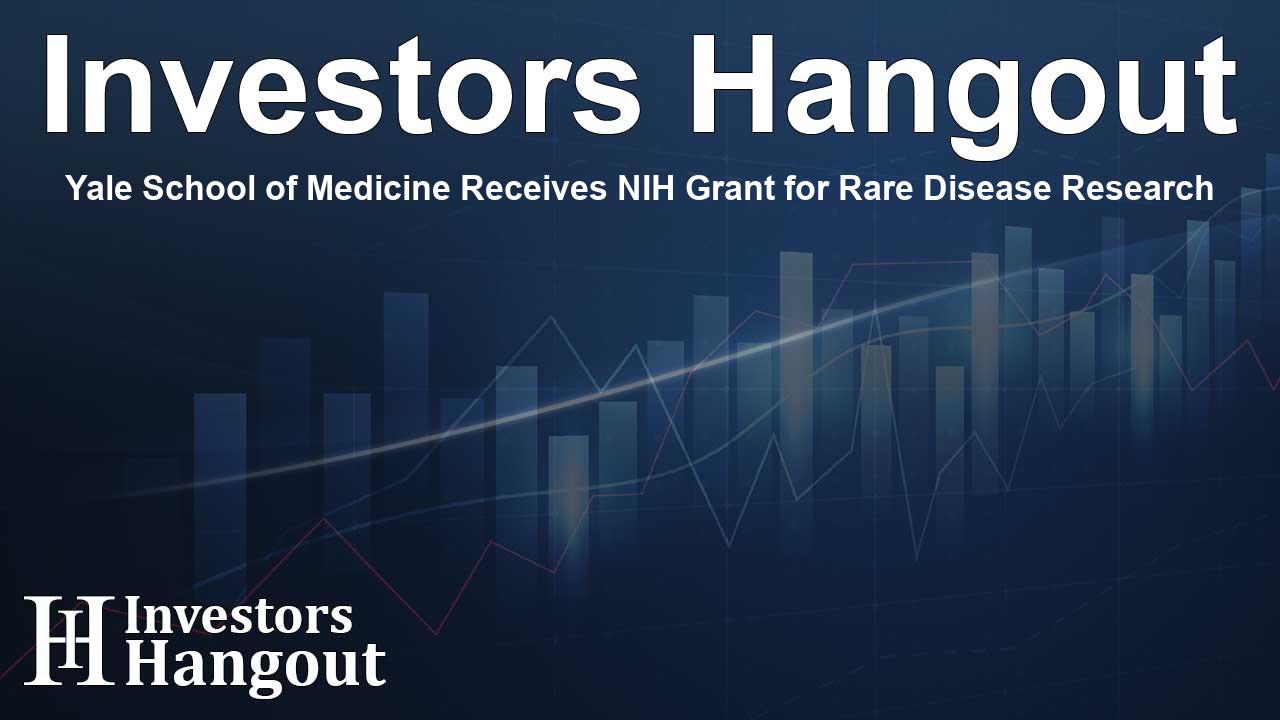Yale School of Medicine Receives NIH Grant for Rare Disease Research

Yale School of Medicine Awarded Major NIH Grant
Yale School of Medicine (YSM) has been granted the opportunity to significantly improve the landscape of rare disease research. With funding of $3.35 million from the National Institutes of Health (NIH), YSM has been designated as a Diagnostic Center of Excellence within the Undiagnosed Diseases Network. This initiative is poised to enhance genetic testing and provide better diagnostic capabilities for patients experiencing unexplained medical symptoms.
Enhancing Diagnostic Capabilities
The newly formed Yale Diagnostic Center of Excellence (YDCoE) is focused on aiding patients from various underserved populations. By enhancing genetic testing procedures, the center aims to shed light on cases that have remained undiagnosed. A pivotal goal is to ensure that primary care physicians are better equipped to recognize and diagnose rare diseases.
Understanding Rare Diseases
Rare diseases impact approximately 300 million individuals worldwide, with conditions classified in the U.S. as those affecting fewer than 200,000 patients. The genetic nature of many of these diseases means that they not only threaten life expectancy but also significantly lower the quality of life for those affected.
Urgent Need for Effective Treatments
There are over 7,000 documented rare diseases, but unfortunately, only around 5% of these have FDA-approved treatments available. This gap frequently leaves patients dependent on managing symptoms rather than receiving targeted therapies. Having a proper diagnosis is critical. It opens avenues for more precise treatments and genetic therapies when applicable.
The Role of Collaboration in Diagnostics
Dr. Yong-Hui Jiang, MD, PhD, who serves as a professor and chief of medical genetics at YSM, recognizes the challenge presented by undiagnosed diseases. He states, "The challenge is there are so many diseases we have not even made a diagnosis for. In medicine, if you don't know what a patient has, it's very challenging to figure out how you can help them." This sentiment underscores the importance of the collaborative efforts at YDCoE.
Comprehensive Approach to Diagnostics
The project leverages expertise from multiple departments, namely Genetics, Pediatrics, Internal Medicine, and Biomedical Informatics & Data Science at YSM. This collaboration includes a range of clinicians, consultants, and researchers affiliated with Yale New Haven Health and local community health organizations.
Through a multi-tiered diagnostic approach, YDCoE will comprehensively analyze medical records and initiate telemedicine consultations or in-person examinations when necessary. This tiered methodology emphasizes thorough genetic testing if an initial diagnosis remains elusive.
Embracing Technology in Medical Diagnostics
Artificial Intelligence (AI) is expected to play a pivotal role in enhancing the diagnostic process at YDCoE. AI tools will streamline patient history reviews and facilitate in-depth genetic analyses, making the diagnostic process more efficient and accurate.
Hope Through Discoveries
Yale School of Medicine's initiative highlights the strength of interdisciplinary collaboration. Dr. Nancy J. Brown, MD, dean of YSM, emphasized how YDCoE exemplifies the importance of teamwork among clinicians, geneticists, and bioinformaticians to drive discoveries and provide hope for those seeking answers regarding rare diseases.
Frequently Asked Questions
What is the primary goal of the Yale Diagnostic Center of Excellence?
The primary goal is to improve genetic testing and diagnostics for rare diseases, particularly for underserved patients facing unexplained symptoms.
How significant is the NIH grant awarded to YSM?
The NIH grant amounts to $3.35 million, which will support YDCoE in enhancing diagnostic capabilities and research regarding rare diseases.
What role does AI play in the diagnostic process at YDCoE?
AI will assist in reviewing patient histories and conducting genetic analyses, which helps streamline the diagnostic process and improve accuracy.
Why are rare diseases a critical health issue?
Rare diseases affect millions worldwide, yet only about 5% have approved treatments, leading to significant challenges in providing care and managing patient outcomes.
Who can benefit from the services provided by YDCoE?
Patients, particularly those from underserved communities experiencing unexplained health issues, will benefit from the advanced diagnostic services at YDCoE.
About Investors Hangout
Investors Hangout is a leading online stock forum for financial discussion and learning, offering a wide range of free tools and resources. It draws in traders of all levels, who exchange market knowledge, investigate trading tactics, and keep an eye on industry developments in real time. Featuring financial articles, stock message boards, quotes, charts, company profiles, and live news updates. Through cooperative learning and a wealth of informational resources, it helps users from novices creating their first portfolios to experts honing their techniques. Join Investors Hangout today: https://investorshangout.com/
Disclaimer: The content of this article is solely for general informational purposes only; it does not represent legal, financial, or investment advice. Investors Hangout does not offer financial advice; the author is not a licensed financial advisor. Consult a qualified advisor before making any financial or investment decisions based on this article. The author's interpretation of publicly available data shapes the opinions presented here; as a result, they should not be taken as advice to purchase, sell, or hold any securities mentioned or any other investments. The author does not guarantee the accuracy, completeness, or timeliness of any material, providing it "as is." Information and market conditions may change; past performance is not indicative of future outcomes. If any of the material offered here is inaccurate, please contact us for corrections.